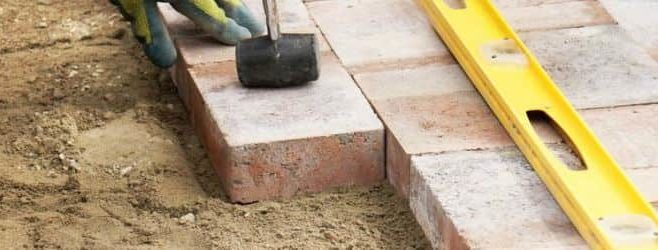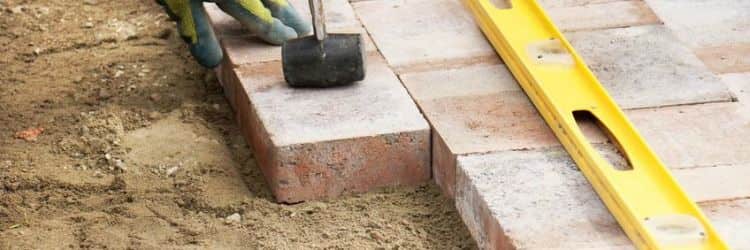Pavers are available in a broad range of colors, shapes, styles and hues, allowing homeowners to create durable, functional and beautiful walkways, driveways and patios. One of the first installation tasks you’ll face is laying the paver base, which is required to give the stone a secure, level foundation on which to rest.
The paver base is usually made up of quarry process (QP) or recycled concrete aggregate (RCA). Concrete sand is also used to provide a setting bed.
As part of your research, it’s essential that you learn how these elements work and support the quality and durability of the finished product. Understanding the fundamentals of paver base and setting beds will also help you shop for raw materials more wisely.
Paver Base: Quarry Process and Recycled Concrete Aggregate
Quarry process (QP) is known by various names, including:
- Dense grade aggregate (DGA)
- Shoulder stone
- Crusher run
- Item #4
- DGABC
It is made up of finely crushed stone, which has been fed through a screened feeder to ensure size uniformity of the finished product. With binding characteristics that support excellent compaction density, QP is typically comprised of limestone, gneiss, trap rock or granite.
Recycled concrete aggregate (RCA) is an excellent alternative to QP. It is manufactured from reclaimed stone and asphalt, which has been crushed and ground down to a very fine size. Like QP, RCA is processed with a screened feeder to create a highly consistent final product. In addition to being an excellent paver base, RCA is used to build roads, highways and parking lots.
When you’re building a residential driveway, walkway or patio using pavers, you will fill in the area’s base with QP or RCA. This creates a smooth, even surface for laying the paver stones; the base level provides an ideal foundation that supports drainage and helps keep the design and configuration intact season after season and year after year.
Paver Base: The Concrete Sand Setting Bed
Concrete sand is also known as setting bed material. This essential product is specially engineered as a thick, stable sand that provides a stable supplemental foundation layer.
It is intended for use in low- to medium-traffic exterior surfaces, and its characteristics include a mixture of dry aggregates and finely processed cement that are mixed with a small amount of water. This results in a dry base packing product with zero slump.
The function of the sand layer is to offer an alternative to applying mortar to the individual bricks in the paved surface. When the pavers are laid, they will sink into the concrete sand bed, forcing the concrete sand up between the sides of the pavers. This helps lock them in place while guarding against the future possibility of water damage.
Paver Base: The Importance of ICPI Standards
The Interlocking Concrete Pavement Institute (ICPI) is a professional association that helps set manufacturing guidelines and quality control standards. It provides an easy way for consumers to find high-quality, professional-grade materials; simply ask whether or not the materials you’re thinking of using conform to ICPI standards.
It is strongly recommended that you choose ICPI-certified products to ensure your project stands up to the rigors of the New Jersey climate. Reputable suppliers can help you find affordable ICPI-endorsed raw materials for your construction job.
Braen Supply is a leading provider of concrete paving stones, and our extensive inventory includes a wide range of QC, RCA and concrete sand products. If you need help choosing the right base elements for your next construction job, or if you’d like to arrange a detailed product consultation, please contact us at Braen Supply.



